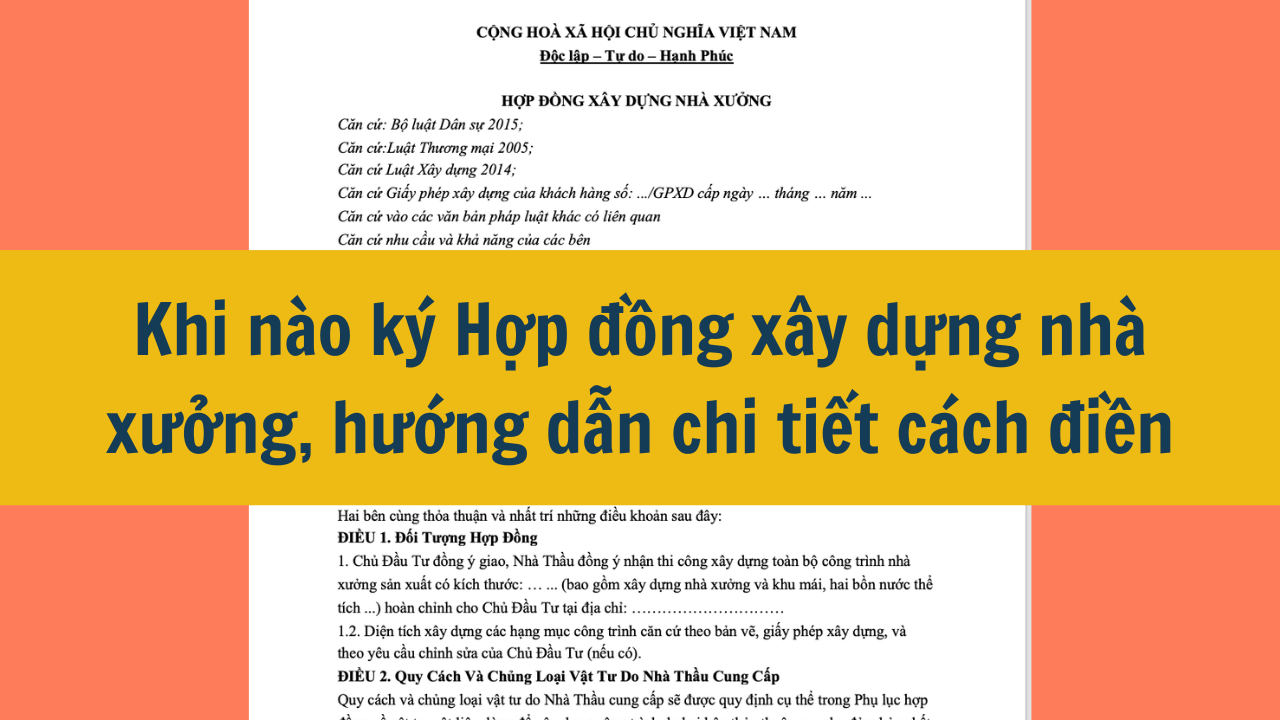 Tìm kiếm
Tìm kiếm
Chương V Luật Thương mại 2005: Các hoạt động trung gian thương mại
| Số hiệu: | 36/2005/QH11 | Loại văn bản: | Luật |
| Nơi ban hành: | Quốc hội | Người ký: | Nguyễn Văn An |
| Ngày ban hành: | 14/06/2005 | Ngày hiệu lực: | 01/01/2006 |
| Ngày công báo: | 22/07/2005 | Số công báo: | Từ số 24 đến số 25 |
| Lĩnh vực: | Thương mại | Tình trạng: | Còn hiệu lực |
TÓM TẮT VĂN BẢN
6 nguyên tắc cơ bản trong hoạt động thương mại
Luật Thương mại 2005 được Quốc hội thông qua ngày 14/6/2005, gồm 9 chương và 324 điều, có hiệu lực kể từ ngày 01/01/2006.
1. Luật quy định 6 nguyên tắc cơ bản trong hoạt động thương mại
Trong đó có:
· Bình đẳng trước pháp luật của thương nhân trong hoạt động thương mại
· Tự do, tự nguyện thoả thuận trong hoạt động thương mại, bảo vệ lợi ích chính đáng của người tiêu dùng...
· Hợp đồng mua bán hàng hoá được thể hiện bằng lời nói, bằng văn bản hoặc được xác lập bằng hành vi cụ thể...
2. Hàng hóa lưu thông trong nước, hàng hóa xuất khẩu, nhập khẩu phải có nhãn hàng hóa
Nhãn hàng hoá là bản viết, bản in, bản vẽ, bản chụp của chữ, hình vẽ, hình ảnh được dán, in, đính, đúc, chạm, khắc trực tiếp trên hàng hoá, bao bì thương phẩm của hàng hoá hoặc trên các chất liệu khác được gắn lên hàng hoá, bao bì thương phẩm của hàng hoá...
Trường hợp bên bán đã giao chứng từ liên quan đến hàng hoá trước thời hạn thỏa thuận thì bên bán vẫn có thể khắc phục những thiếu sót của các chứng từ này trong thời hạn còn lại...
3. Xác định giá dịch vụ trương trường hợp không có thỏa thuận
Trường hợp không có thoả thuận về giá dịch vụ, không có thoả thuận về phương pháp xác định giá dịch vụ và cũng không có bất kỳ chỉ dẫn nào khác về giá dịch vụ thì giá dịch vụ được xác định theo giá của loại dịch vụ đó trong các điều kiện tương tự về phương thức cung ứng, thời điểm cung ứng, thị trường địa lý, phương thức thanh toán và các điều kiện khác có ảnh hưởng đến giá dịch vụ...
Văn bản tiếng việt
Văn bản tiếng anh
1. Đại diện cho thương nhân là việc một thương nhân nhận uỷ nhiệm (gọi là bên đại diện) của thương nhân khác (gọi là bên giao đại diện) để thực hiện các hoạt động thương mại với danh nghĩa, theo sự chỉ dẫn của thương nhân đó và được hưởng thù lao về việc đại diện.
2. Trong trường hợp thương nhân cử người của mình để làm đại diện cho mình thì áp dụng quy định của Bộ luật dân sự.
Hợp đồng đại diện cho thương nhân phải được lập thành văn bản hoặc bằng hình thức khác có giá trị pháp lý tương đương.
Các bên có thể thoả thuận về việc bên đại diện được thực hiện một phần hoặc toàn bộ hoạt động thương mại thuộc phạm vi hoạt động của bên giao đại diện.
1. Thời hạn đại diện do các bên thoả thuận.
2. Trường hợp không có thoả thuận, thời hạn đại diện chấm dứt khi bên giao đại diện thông báo cho bên đại diện về việc chấm dứt hợp đồng đại diện hoặc bên đại diện thông báo cho bên giao đại diện về việc chấm dứt hợp đồng.
3. Trừ trường hợp có thoả thuận khác, nếu bên giao đại diện đơn phương thông báo chấm dứt hợp đồng đại diện theo quy định tại khoản 2 Điều này thì bên đại diện có quyền yêu cầu bên giao đại diện trả một khoản thù lao do việc bên giao đại diện giao kết các hợp đồng với khách hàng mà bên đại diện đã giao dịch và những khoản thù lao khác mà đáng lẽ mình được hưởng.
4. Trường hợp thời hạn đại diện chấm dứt theo quy định tại khoản 2 Điều này theo yêu cầu của bên đại diện thì bên đại diện bị mất quyền hưởng thù lao đối với các giao dịch mà đáng lẽ mình được hưởng nếu các bên không có thoả thuận khác.
Trừ trường hợp có thỏa thuận khác, bên đại diện có các nghĩa vụ sau đây:
1. Thực hiện các hoạt động thương mại với danh nghĩa và vì lợi ích của bên giao đại diện;
2. Thông báo cho bên giao đại diện về cơ hội và kết quả thực hiện các hoạt động thương mại đã được uỷ quyền;
3. Tuân thủ chỉ dẫn của bên giao đại diện nếu chỉ dẫn đó không vi phạm quy định của pháp luật;
4. Không được thực hiện các hoạt động thương mại với danh nghĩa của mình hoặc của người thứ ba trong phạm vi đại diện;
5. Không được tiết lộ hoặc cung cấp cho người khác các bí mật liên quan đến hoạt động thương mại của bên giao đại diện trong thời gian làm đại diện và trong thời hạn hai năm, kể từ khi chấm dứt hợp đồng đại diện;
6. Bảo quản tài sản, tài liệu được giao để thực hiện hoạt động đại diện.
Trừ trường hợp có thỏa thuận khác, bên giao đại diện có các nghĩa vụ sau đây:
1. Thông báo ngay cho bên đại diện về việc giao kết hợp đồng mà bên đại diện đã giao dịch, việc thực hiện hợp đồng mà bên đại diện đã giao kết, việc chấp nhận hay không chấp nhận các hoạt động ngoài phạm vi đại diện mà bên đại diện thực hiện;
2. Cung cấp tài sản, tài liệu, thông tin cần thiết để bên đại diện thực hiện hoạt động đại diện;
3. Trả thù lao và các chi phí hợp lý khác cho bên đại diện;
4. Thông báo kịp thời cho bên đại diện về khả năng không giao kết được, không thực hiện được hợp đồng trong phạm vi đại diện.
1. Bên đại diện được hưởng thù lao đối với hợp đồng được giao kết trong phạm vi đại diện. Quyền được hưởng thù lao phát sinh từ thời điểm do các bên thoả thuận trong hợp đồng đại diện.
2. Trường hợp không có thỏa thuận, mức thù lao cho bên đại diện được xác định theo quy định tại Điều 86 của Luật này.
Trừ trường hợp có thoả thuận khác, bên đại diện có quyền yêu cầu được thanh toán các khoản chi phí phát sinh hợp lý để thực hiện hoạt động đại diện.
Trừ trường hợp có thỏa thuận khác, bên đại diện có quyền cầm giữ tài sản, tài liệu được giao để bảo đảm việc thanh toán các khoản thù lao và chi phí đã đến hạn.
Môi giới thương mại là hoạt động thương mại, theo đó một thương nhân làm trung gian (gọi là bên môi giới) cho các bên mua bán hàng hoá, cung ứng dịch vụ (gọi là bên được môi giới) trong việc đàm phán, giao kết hợp đồng mua bán hàng hoá, dịch vụ và được hưởng thù lao theo hợp đồng môi giới.
Trừ trường hợp có thỏa thuận khác, bên môi giới thương mại có các nghĩa vụ sau đây:
1. Bảo quản các mẫu hàng hoá, tài liệu được giao để thực hiện việc môi giới và phải hoàn trả cho bên được môi giới sau khi hoàn thành việc môi giới;
2. Không được tiết lộ, cung cấp thông tin làm phương hại đến lợi ích của bên được môi giới;
3. Chịu trách nhiệm về tư cách pháp lý của các bên được môi giới, nhưng không chịu trách nhiệm về khả năng thanh toán của họ;
4. Không được tham gia thực hiện hợp đồng giữa các bên được môi giới, trừ trường hợp có uỷ quyền của bên được môi giới.
Trừ trường hợp có thỏa thuận khác, bên được môi giới có các nghĩa vụ sau đây:
1. Cung cấp các thông tin, tài liệu, phương tiện cần thiết liên quan đến hàng hoá, dịch vụ;
2. Trả thù lao môi giới và các chi phí hợp lý khác cho bên môi giới.
Trừ trường hợp có thỏa thuận khác, bên được môi giới phải thanh toán các chi phí phát sinh hợp lý liên quan đến việc môi giới, kể cả khi việc môi giới không mang lại kết quả cho bên được môi giới.
Uỷ thác mua bán hàng hoá là hoạt động thương mại, theo đó bên nhận uỷ thác thực hiện việc mua bán hàng hoá với danh nghĩa của mình theo những điều kiện đã thoả thuận với bên uỷ thác và được nhận thù lao uỷ thác.
Bên nhận uỷ thác mua bán hàng hoá là thương nhân kinh doanh mặt hàng phù hợp với hàng hoá được uỷ thác và thực hiện mua bán hàng hoá theo những điều kiện đã thoả thuận với bên uỷ thác.
Bên uỷ thác mua bán hàng hoá là thương nhân hoặc không phải là thương nhân giao cho bên nhận uỷ thác thực hiện mua bán hàng hoá theo yêu cầu của mình và phải trả thù lao uỷ thác.
Tất cả hàng hoá lưu thông hợp pháp đều có thể được uỷ thác mua bán.
Hợp đồng uỷ thác mua bán hàng hoá phải được lập thành văn bản hoặc bằng hình thức khác có giá trị pháp lý tương đương.
Bên nhận uỷ thác có thể nhận uỷ thác mua bán hàng hoá của nhiều bên uỷ thác khác nhau.
Trừ trường hợp có thoả thuận khác, bên uỷ thác có các nghĩa vụ sau đây:
1. Cung cấp thông tin, tài liệu và phương tiện cần thiết cho việc thực hiện hợp đồng uỷ thác;
2. Trả thù lao uỷ thác và các chi phí hợp lý khác cho bên nhận ủy thác;
3. Giao tiền, giao hàng theo đúng thoả thuận;
4. Liên đới chịu trách nhiệm trong trường hợp bên nhận uỷ thác vi phạm pháp luật mà nguyên nhân do bên uỷ thác gây ra hoặc do các bên cố ý làm trái pháp luật.
Trừ trường hợp có thoả thuận khác, bên nhận uỷ thác có các quyền sau đây:
1. Yêu cầu bên uỷ thác cung cấp thông tin, tài liệu cần thiết cho việc thực hiện hợp đồng uỷ thác;
2. Nhận thù lao uỷ thác và các chi phí hợp lý khác;
3. Không chịu trách nhiệm về hàng hoá đã bàn giao đúng thoả thuận cho bên uỷ thác.
Trừ trường hợp có thoả thuận khác, bên nhận uỷ thác có các nghĩa vụ sau đây:
1. Thực hiện mua bán hàng hoá theo thỏa thuận;
2. Thông báo cho bên uỷ thác về các vấn đề có liên quan đến việc thực hiện hợp đồng uỷ thác;
3. Thực hiện các chỉ dẫn của bên uỷ thác phù hợp với thoả thuận;
4. Bảo quản tài sản, tài liệu được giao để thực hiện hợp đồng uỷ thác;
5. Giữ bí mật về những thông tin có liên quan đến việc thực hiện hợp đồng uỷ thác;
6. Giao tiền, giao hàng theo đúng thoả thuận;
7. Liên đới chịu trách nhiệm về hành vi vi phạm pháp luật của bên ủy thác, nếu nguyên nhân của hành vi vi phạm pháp luật đó có một phần do lỗi của mình gây ra.
Đại lý thương mại là hoạt động thương mại, theo đó bên giao đại lý và bên đại lý thoả thuận việc bên đại lý nhân danh chính mình mua, bán hàng hoá cho bên giao đại lý hoặc cung ứng dịch vụ của bên giao đại lý cho khách hàng để hưởng thù lao.
1. Bên giao đại lý là thương nhân giao hàng hoá cho đại lý bán hoặc giao tiền mua hàng cho đại lý mua hoặc là thương nhân uỷ quyền thực hiện dịch vụ cho đại lý cung ứng dịch vụ.
2. Bên đại lý là thương nhân nhận hàng hoá để làm đại lý bán, nhận tiền mua hàng để làm đại lý mua hoặc là bên nhận uỷ quyền cung ứng dịch vụ.
Hợp đồng đại lý phải được lập thành văn bản hoặc bằng hình thức khác có giá trị pháp lý tương đương.
1. Đại lý bao tiêu là hình thức đại lý mà bên đại lý thực hiện việc mua, bán trọn vẹn một khối lượng hàng hoá hoặc cung ứng đầy đủ một dịch vụ cho bên giao đại lý.
2. Đại lý độc quyền là hình thức đại lý mà tại một khu vực địa lý nhất định bên giao đại lý chỉ giao cho một đại lý mua, bán một hoặc một số mặt hàng hoặc cung ứng một hoặc một số loại dịch vụ nhất định.
3. Tổng đại lý mua bán hàng hoá, cung ứng dịch vụ là hình thức đại lý mà bên đại lý tổ chức một hệ thống đại lý trực thuộc để thực hiện việc mua bán hàng hoá, cung ứng dịch vụ cho bên giao đại lý.
Tổng đại lý đại diện cho hệ thống đại lý trực thuộc. Các đại lý trực thuộc hoạt động dưới sự quản lý của tổng đại lý và với danh nghĩa của tổng đại lý.
4. Các hình thức đại lý khác mà các bên thỏa thuận.
Bên giao đại lý là chủ sở hữu đối với hàng hoá hoặc tiền giao cho bên đại lý.
1. Trừ trường hợp có thoả thuận khác, thù lao đại lý được trả cho bên đại lý dưới hình thức hoa hồng hoặc chênh lệch giá.
2. Trường hợp bên giao đại lý ấn định giá mua, giá bán hàng hóa hoặc giá cung ứng dịch vụ cho khách hàng thì bên đại lý được hưởng hoa hồng tính theo tỷ lệ phần trăm trên giá mua, giá bán hàng hóa hoặc giá cung ứng dịch vụ.
3. Trường hợp bên giao đại lý không ấn định giá mua, giá bán hàng hoá hoặc giá cung ứng dịch vụ cho khách hàng mà chỉ ấn định giá giao đại lý cho bên đại lý thì bên đại lý được hưởng chênh lệch giá. Mức chênh lệch giá được xác định là mức chênh lệch giữa giá mua, giá bán, giá cung ứng dịch vụ cho khách hàng so với giá do bên giao đại lý ấn định cho bên đại lý.
4. Trường hợp các bên không có thoả thuận về mức thù lao đại lý thì mức thù lao được tính như sau:
a) Mức thù lao thực tế mà các bên đã được trả trước đó;
b) Trường hợp không áp dụng được điểm a khoản này thì mức thù lao đại lý là mức thù lao trung bình được áp dụng cho cùng loại hàng hoá, dịch vụ mà bên giao đại lý đã trả cho các đại lý khác;
c) Trường hợp không áp dụng được điểm a và điểm b khoản này thì mức thù lao đại lý là mức thù lao thông thường được áp dụng cho cùng loại hàng hoá, dịch vụ trên thị trường.
Trừ trường hợp có thỏa thuận khác, bên giao đại lý có các quyền sau đây:
1. ấn định giá mua, giá bán hàng hoá, giá cung ứng dịch vụ đại lý cho khách hàng;
2. Ấn định giá giao đại lý;
3. Yêu cầu bên đại lý thực hiện biện pháp bảo đảm theo quy định của pháp luật;
4. Yêu cầu bên đại lý thanh toán tiền hoặc giao hàng theo hợp đồng đại lý;
5. Kiểm tra, giám sát việc thực hiện hợp đồng của bên đại lý.
Trừ trường hợp có thỏa thuận khác, bên giao đại lý có các nghĩa vụ sau đây:
1. Hướng dẫn, cung cấp thông tin, tạo điều kiện cho bên đại lý thực hiện hợp đồng đại lý;
2. Chịu trách nhiệm về chất lượng hàng hóa của đại lý mua bán hàng hóa, chất lượng dịch vụ của đại lý cung ứng dịch vụ;
3. Trả thù lao và các chi phí hợp lý khác cho bên đại lý;
4. Hoàn trả cho bên đại lý tài sản của bên đại lý dùng để bảo đảm (nếu có) khi kết thúc hợp đồng đại lý;
5. Liên đới chịu trách nhiệm về hành vi vi phạm pháp luật của bên đại lý, nếu nguyên nhân của hành vi vi phạm pháp luật đó có một phần do lỗi của mình gây ra.
Trừ trường hợp các bên có thỏa thuận khác, bên đại lý có các quyền sau đây:
1. Giao kết hợp đồng đại lý với một hoặc nhiều bên giao đại lý, trừ trường hợp quy định tại khoản 7 Điều 175 của Luật này;
2. Yêu cầu bên giao đại lý giao hàng hoặc tiền theo hợp đồng đại lý; nhận lại tài sản dùng để bảo đảm (nếu có) khi kết thúc hợp đồng đại lý;
3. Yêu cầu bên giao đại lý hướng dẫn, cung cấp thông tin và các điều kiện khác có liên quan để thực hiện hợp đồng đại lý;
4. Quyết định giá bán hàng hóa, cung ứng dịch vụ cho khách hàng đối với đại lý bao tiêu;
5. Hưởng thù lao, các quyền và lợi ích hợp pháp khác do hoạt động đại lý mang lại.
Trừ trường hợp có thỏa thuận khác, bên đại lý có các nghĩa vụ sau đây:
1. Mua, bán hàng hóa, cung ứng dịch vụ cho khách hàng theo giá hàng hóa, giá cung ứng dịch vụ do bên giao đại lý ấn định;
2. Thực hiện đúng các thỏa thuận về giao nhận tiền, hàng với bên giao đại lý;
3. Thực hiện các biện pháp bảo đảm thực hiện nghĩa vụ dân sự theo quy định của pháp luật;
4. Thanh toán cho bên giao đại lý tiền bán hàng đối với đại lý bán; giao hàng mua đối với đại lý mua; tiền cung ứng dịch vụ đối với đại lý cung ứng dịch vụ;
5. Bảo quản hàng hoá sau khi nhận đối với đại lý bán hoặc trước khi giao đối với đại lý mua; liên đới chịu trách nhiệm về chất lượng hàng hóa của đại lý mua bán hàng hóa, chất lượng dịch vụ của đại lý cung ứng dịch vụ trong trường hợp có lỗi do mình gây ra;
6. Chịu sự kiểm tra, giám sát của bên giao đại lý và báo cáo tình hình hoạt động đại lý với bên giao đại lý;
7. Trường hợp pháp luật có quy định cụ thể về việc bên đại lý chỉ được giao kết hợp đồng đại lý với một bên giao đại lý đối với một loại hàng hóa hoặc dịch vụ nhất định thì phải tuân thủ quy định của pháp luật đó.
Trừ trường hợp có thoả thuận khác, việc thanh toán tiền hàng, tiền cung ứng dịch vụ và thù lao đại lý được thực hiện theo từng đợt sau khi bên đại lý hoàn thành việc mua, bán một khối lượng hàng hoá hoặc cung ứng một khối lượng dịch vụ nhất định.
1. Trừ trường hợp có thoả thuận khác, thời hạn đại lý chỉ chấm dứt sau một thời gian hợp lý nhưng không sớm hơn sáu mươi ngày, kể từ ngày một trong hai bên thông báo bằng văn bản cho bên kia về việc chấm dứt hợp đồng đại lý.
2. Trừ trường hợp có thỏa thuận khác, nếu bên giao đại lý thông báo chấm dứt hợp đồng theo quy định tại khoản 1 Điều này thì bên đại lý có quyền yêu cầu bên giao đại lý bồi thường một khoản tiền cho thời gian mà mình đã làm đại lý cho bên giao đại lý đó.
Giá trị của khoản bồi thường là một tháng thù lao đại lý trung bình trong thời gian nhận đại lý cho mỗi năm mà bên đại lý làm đại lý cho bên giao đại lý. Trong trường hợp thời gian đại lý dưới một năm thì khoản bồi thường được tính là một tháng thù lao đại lý trung bình trong thời gian nhận đại lý.
3. Trường hợp hợp đồng đại lý được chấm dứt trên cơ sở yêu cầu của bên đại lý thì bên đại lý không có quyền yêu cầu bên giao đại lý bồi thường cho thời gian mà mình đã làm đại lý cho bên giao đại lý.
INTERMEDIARY ACTIVITIES IN COMMERCE
SECTION 1. REPRESENTATION OF TRADERS
Article 141. Representation for traders
1. Representation for traders is defined as an arrangement where a trader is granted authorization (hereinafter referred to as the representative) by another trader (hereinafter referred to as the principal) to perform trades under the name or direction of the former, and earn remunerations for his/her representation service rendered.
2. Where a trader assigns one of his/her employees as his/her representative, the Civil Code shall be applied.
Article 142. Agreement on representation for traders
An agreement on representation for traders must be in writing or take other forms which have the same legal value.
Article 143. Scope of representation
Contracting parties may reach an agreement where the representative is authorized to represent, whether in part or in whole, trading activities that fall within the remit of the principal.
Article 144. Duration of representation for traders
1. Duration of representation shall be agreed upon by contracting parties.
2. In the absence of any agreement, the validity duration of representation ends in either case where the principal or the representative notifies the other of termination of the representation agreement.
3. Unless otherwise agreed, if the principal unilaterally gives notification of termination of an agreement on representation in accordance with Clause 2 of this Article, the representative shall be entitled to claim remunerations paid by the principal for conclusion of contracts with his/her own clients and other payments that (s)he would have received.
4. Where duration of representation ends in such a manner, referred to in Clause 2 of this Article, upon the request of the representative, the representative shall be deprived of the right to claim any remuneration for trades that (s)he would have received, unless otherwise agreed upon by contracting parties.
Article 145. Obligations of the representative
Unless otherwise agreed, the representative shall take on the following obligations:
1. Perform trades under the name, and for the interests of, the principal;
2. Inform the principal of opportunities for, and outcomes of, performance of trades which have been authorized;
3. Observe the principal’s instructions which are not in violation of laws and regulations.
4. Avoid performing trades under the name of his/her own or of any third party within the scope of representation;
5. Avoid disclosing or providing any non-party confidential information about his/her trades during the validity duration when his/her representation is rendered and within two years after that representation agreement is terminated;
6. Provide safe custody of assets or documents which have been entrusted to perform representation activities.
Article 146. Obligations of the principal
Unless otherwise agreed, the principal shall assume the following obligations:
1. Promptly inform the representative of conclusion of contracts that the representative has negotiated, execution of contracts that the representative has negotiated, approval or rejection of activities which do not fall within the agreed remit of the representative;
2. Provide assets, documents and any information necessary for the representative’s contractual representation activities;
3. Pay remunerations and other reasonable expenses to the representative;
4. Duly inform the representative of possibility that a contract may not be concluded or executed within the stated scope of representation.
Article 147. Entitlement to the representative’s remunerations
1. The representative shall be entitled to remunerations for any contract which is concluded within the contractual scope of representation. Entitlement to such remunerations arises as from the date agreed upon in an agreement on representation by contracting parties.
2. In the absence of any agreement, remuneration rate shall be defined in accordance with Article 86 hereof.
Article 148. Payment for any expense incurred
Unless otherwise agreed, the representative shall be accorded the right to claim payments for any expense incurred on a reasonable basis for the purpose of performing contractual representation activities.
Article 149. Lien
Unless otherwise agreed, the representative shall be entitled to exercise lien over entrusted assets and documents to secure the payment of remunerations and expenses due.
SECTION 2. COMMERCIAL BROKERAGE
Article 150.- Commercial brokerage
Commercial brokerage means a commercial activity whereby a trader acts as an intermediary (referred to as broker) between parties selling and purchasing goods or providing commercial services (referred to as principals) in the course of negotiations and entering into contracts for sale and purchase of goods or provision of services and shall be entitled to a remuneration under a brokerage contract.
Article 151.- Obligations of commercial brokers
Unless otherwise agreed, a commercial broker shall have the following obligations:
1. To preserve samples of goods and documents assigned for the performance of brokerage activities, and to return them to the principals after the completion of brokerage;
2. Not to disclose or supply information to the detriment of the interests of the principals;
3. To be responsible for the legal status, but not for the solvency, of the principals;
4. Not to take part in the performance of contracts between the principals, except where so authorized by the principals.
Article 152.- Obligations of principals
Unless otherwise agreed, a principal shall have the following obligations:
1. To supply information, documents, necessary means related to goods and services;
2. To pay brokerage remuneration and other reasonable expenses to the broker.
Article 153.- The right to enjoy brokerage remuneration
1. Unless otherwise agreed, the right to enjoy brokerage remuneration arises from the time the principals enter into contracts.
2. Where there is no agreement, brokerage remuneration rates shall be determined according to the provisions of Article 86 of this Law.
Article 154.- Payment of expenses incurred in relation to brokerage
Unless otherwise agreed, principals must pay all reasonable expenses incurred in relation to brokerage to brokers, even where the brokerage does not bring about any results for principals.
SECTION 3. SALE AND PURCHASE OF GOODS BY MANDATED DEALERS
Article 155.- Purchase and sale of goods by mandated dealers
Purchase and sale of goods by mandated dealers mean commercial activities whereby the mandatory conducts the purchase and sale of goods in his/her/its own name under terms agreed upon with the mandator and is entitled to receive mandate commission.
A mandatory for purchase and sale of goods is a trader dealing in goods which are consistent with the mandated goods and conducting the purchase and sale of goods under terms agreed upon with the mandator.
A mandator of purchase and sale of goods may, or may not, be a trader that authorizes a mandatory to conduct the purchase and sale of goods at his/her/its request and pays a commission.
All goods which are lawfully circulated may become the subject matter of a mandated sale and purchase.
Article 159.- Mandate contracts
Mandate contracts for purchase and sale of goods must be made in writing or in other forms of equivalent legal validity.
Article 160.- Sub-mandate to a third party
A mandatory shall not be allowed to sub-mandate a third party to perform the signed mandate contract for purchase and sale of goods, except where it is so approved in writing by the mandator.
Article 161.- Multilateral mandate
A mandatory may accept the mandate for purchase and sale of goods from different mandators.
Article 162.- Rights of mandators
Unless otherwise agreed, mandators shall have the following rights:
1. To request mandatories to supply adequate information on the performance of mandate contracts;
2. Not to bear responsibility in cases where mandatories commit law violations, except for cases specified in Clause 4, Article 163 of this Law.
Article 163.- Obligations of mandators
Unless otherwise agreed, mandators shall have the following obligations:
1. To provide information, documents and means necessary for the performance of mandate contracts;
2. To pay mandate commissions and other reasonable expenses to mandatories;
3. To hand over money and goods as agreed upon;
4. To bear joint responsibility in cases where mandatories commit law violations which are attributable to acts of mandators or intentional law-breaking acts of the parties.
Article 164.- Rights of mandatories
Unless otherwise agreed, mandatories shall have the following rights:
1. To request mandators to provide information and documents necessary for the performance of mandate contracts;
2. To receive mandate commissions;
3. Not to bear responsibility for goods handed over to mandators strictly under agreement.
Article 165.- Obligations of mandatories
Unless otherwise agreed, mandatories shall have the following obligations:
1. To conduct the purchase and sale of goods as agreed upon;
2. To notify mandators of matters related to the performance of mandate contracts;
3. To follow instructions of mandators as agreed upon;
4. To preserve assets and documents assigned to them for the performance of mandate contracts;
5. To keep secret information related to the performance of mandate contracts;
6. To hand over money and goods as agreed upon;
7. To bear joint responsibility for law violation acts of mandators, in cases where such law violation acts are partially attributable to their own faults
Article 166.- Commercial agency
Commercial agency means a commercial activity whereby the principal and the agent agree that the agent, in its own name, sells or purchases goods for the principal or provides services of the principal to customers for remuneration.
Article 167.- Principals and agents
1. Principals are traders that deliver goods to agents for sale or provide money to agents for purchase of goods, or traders that authorize the provision of services to service-providing agents.
2. Agents are traders that receive goods to act as sale agents or receive money to act as purchase agents or accepts the authorization to provide services.
Article 168.- Agency contracts
Agency contracts must be made in writing or in other forms of equivalent legal validity.
1. Off-take agency is a form of agency whereby the agent definitely sells or purchases a specific quantity of goods or provides a full service for the principal.
2. Exclusive agency is a form of agency whereby a sole agent is authorized by the principal to sell or purchase one or more goods items or to provide one or more types of services within a given geographical area.
3. General goods sale or purchase or service provision agency is a form of agency whereby an agent organizes a network of sub-agents to sell or purchase goods, or provide services for the principal.
The general agent represents the network of sub-agents. Sub-agents operate under the management and in the name of the general agent.
4. Other forms of agency agreed upon by the parties.
Article 170.- Ownership right in commercial agency
The principal is the owner of goods or money delivered to the agent(s).
Article 171.- Agency remuneration
1. Unless otherwise agreed, agency remuneration shall be paid to agents in the form of commission or price margin.
2. Where principals fix goods purchase or sale prices or service charge rates, agents shall enjoy commissions calculated in percentage of such goods purchase or sale prices or service charge rates.
3. Where principals do not fix goods purchase or sale prices or service charge rates but fix only agency prices, agents shall enjoy price margins. Price margin is determined to be the difference between goods purchase or sale price or service charge rate and the price fixed by the principals for the agent.
4. Where the parties do not agree upon the agency remuneration level, the remuneration level shall be calculated as follows:
a/ The actual remuneration level which has been previously paid by/to parties;
b/ Where Point a of this Clause cannot apply, the agency remuneration level shall be the average remuneration level applicable to the same type of goods or service paid by the principal to other agents;
c/ Where Points a and b of this Clause cannot apply, the agency remuneration level shall be the ordinary remuneration level applicable to the same type of goods or service in the market.
Article 172.- Rights of principals
Unless otherwise agreed, principals shall have the following rights:
1. To fix prices of goods purchased or sold or charge rates of services provided to customers under agency;
2. To fix agency prices;
3. To request agents to take security measures as provided for by law;
4. To request agents to make payments or deliver goods under agency contracts;
5. To inspect and supervise the performance of contracts by agents;
Article 173.- Obligations of principals
Unless otherwise agreed, principals shall have the following obligations:
1. To guide, supply information to, and facilitate, agents to perform agency contracts;
2. To bear responsibility for quality of goods of goods sale or purchase agents, and quality of services of service-providing agents;
3. To pay remuneration and other reasonable expenses to agents;
4. To return to agents their assets used as security (if any) upon the termination of agency contracts;
5. To bear joint responsibility for law violation acts of agents if such law violation acts are partly attributable to their faults.
Article 174.- Rights of agents
Unless otherwise agreed by the parties, agents shall have the following rights:
1. To enter into agency contracts with one or more principals, except for cases specified in Clause 7, Article 175 of this Law;
2. To request principals to deliver goods or money under agency contracts; to take back assets used as security (if any) upon the termination of agency contracts;
3. To request principals to guide, supply information and create other related conditions for the performance of agency contracts;
4. To decide on goods sale prices or service charge rates for customers, for off-take agents;
5. To enjoy remunerations and other lawful rights and interests brought about by agency activities.
Article 175.- Obligations of agents
Unless otherwise agreed, agents shall have the following obligations:
1. To purchase or sell goods or provide services to customers at prices or charge rates fixed by principals;
2. To comply strictly with agreements on handover and receipt of money and goods with principals;
3. To take security measures for performance of civil obligations as provided for by law;
4. To pay to principals any proceeds of the sale of goods, for sale agents; to deliver purchased goods to principals, for purchase agents; or to pay service charges to principals, for service-providing agents;
5. To preserve goods after the receipt thereof, for sale agents, or prior to the delivery thereof, for purchase agents; to bear joint responsibility for quality of goods of purchase or sale agents or quality of services of service-providing agents in cases where they are at fault;
6. To submit to inspection and supervision by principals, and to report to principals on their agency activities;
7. Where it is specified by law that an agent shall be allowed to enter into an agency contract with a principal for a certain type of goods or service, such provision of law must be complied with.
Article 176.- Payment in agency activities
Unless otherwise agreed, payments for goods, payment of service charges and payment of agency remunerations shall be made in installments after agents complete the purchase or sale of a specific quantity of goods or the provision of a specific volume of services.
Article 177.- Duration of agency
1. Unless otherwise agreed, the duration of agency shall expire only after a reasonable period of time which must be at least 60 days after either party to the agency contract notifies the other party of the termination of such agency contract.
2. Unless otherwise agreed, if the principal notifies the termination of the agency contract according to the provisions of Clause 1 of this Article, the agent shall have the right to request the principal to pay a compensation for the period of time during which it has acted as an agent for such principal.
The value of such compensation shall be an average one-month’s agency remuneration for each year the agent has acted as an agent for the principal. Where the duration of agency is less than one year, such compensation shall be equal to an average one-month’s agency remuneration during the agency term.
3. Where an agency contract is terminated at the request of the agent, the agent shall not have the right to request the principal to pay compensation for the period of time during which it has acted as an agent for the principal.
Văn bản liên quan
Cập nhật
Điều 28. Xuất khẩu, nhập khẩu hàng hoá
Điều 29. Tạm nhập, tái xuất, tạm xuất, tái nhập hàng hoá
Điều 31. Áp dụng các biện pháp khẩn cấp đối với hoạt động mua bán hàng hóa quốc tế
Điều 33. Giấy chứng nhận xuất xứ hàng hoá và quy tắc xuất xứ hàng hóa
Điều 242. Quyền quá cảnh hàng hóa
Điều 243. Tuyến đường quá cảnh
Điều 244. Quá cảnh bằng đường hàng không
Điều 92. Các hình thức khuyến mại
Điều 94. Hàng hoá, dịch vụ dùng để khuyến mại, mức giảm giá khuyến mại
Điều 108. Bảo hộ quyền sở hữu trí tuệ đối với sản phẩm quảng cáo thương mại
Điều 109. Các quảng cáo thương mại bị cấm
Mục 4. Hội chợ, triển lãm thương mại
Điều 132. Tổ chức hội chợ, triển lãm thương mại tại Việt Nam
Điều 133. Tổ chức, tham gia hội chợ, triển lãm thương mại ở nước ngoài
Điều 134. Hàng hoá, dịch vụ trưng bày, giới thiệu tại hội chợ, triển lãm thương mại tại Việt Nam
Bài viết liên quan
Khi nào ký Hợp đồng xây dựng nhà xưởng, hướng dẫn chi tiết cách điền

Khi nào ký Hợp đồng xây dựng nhà xưởng, hướng dẫn chi tiết cách điền
Ký kết hợp đồng xây dựng nhà xưởng là một bước quan trọng, giúp đảm bảo quyền lợi và trách nhiệm của các bên tham gia. Dưới đây là hướng dẫn chi tiết từng bước và cách điền vào hợp đồng. 03/11/2024Hợp đồng thi công xây dựng nhà phố là gì?

Hợp đồng thi công xây dựng nhà phố là gì?
Khi bắt tay vào xây dựng một ngôi nhà phố, việc có một hợp đồng thi công rõ ràng và chặt chẽ là vô cùng quan trọng. Hợp đồng thi công xây dựng nhà phố không chỉ là thỏa thuận pháp lý giữa chủ đầu tư và nhà thầu, mà còn là nền tảng đảm bảo các bên hiểu rõ quyền lợi và trách nhiệm của mình trong suốt quá trình thi công. Từ đó, công trình không chỉ đáp ứng về mặt tiến độ và chất lượng mà còn an toàn, bền vững theo thời gian. Với một hợp đồng rõ ràng, minh bạch, chủ đầu tư và nhà thầu có thể dễ dàng phối hợp, giải quyết các vướng mắc, đồng thời giúp tránh các tranh chấp có thể xảy ra trong quá trình thực hiện dự án. 02/11/2024Mẫu hợp đồng thi công xây dựng nhà ở mới nhất và hướng dẫn điền mẫu hợp đồng thi công xây dựng nhà ở chi tiết nhất năm 2025

Mẫu hợp đồng thi công xây dựng nhà ở mới nhất và hướng dẫn điền mẫu hợp đồng thi công xây dựng nhà ở chi tiết nhất năm 2025
Mẫu hợp đồng xây dựng nhà ở có thể thay đổi theo thời gian và tuỳ thuộc vào từng địa phương, dự án cụ thể. Cùng tham khảo mẫu hợp đồng thi công xây dựng nhà ở mới nhất dưới đây. 21/11/2024Cho thuê chung cư có bắt buộc phải đăng ký kinh doanh không mới nhất năm 2024?

Cho thuê chung cư có bắt buộc phải đăng ký kinh doanh không mới nhất năm 2024?
Trong bối cảnh thị trường cho thuê chung cư ngày càng phát triển, câu hỏi về việc có cần đăng ký kinh doanh khi cho thuê hay không trở thành mối quan tâm của nhiều chủ nhà. Năm 2024, các quy định liên quan đến hoạt động cho thuê chung cư đã có những thay đổi đáng chú ý, ảnh hưởng trực tiếp đến quyền lợi và trách nhiệm của người cho thuê. Bài viết này sẽ phân tích những yêu cầu pháp lý hiện hành về việc đăng ký kinh doanh khi cho thuê chung cư, giúp bạn đưa ra quyết định đúng đắn và đảm bảo tuân thủ các quy định của pháp luật. Hãy cùng tìm hiểu để tối ưu hóa hoạt động cho thuê của mình! 20/11/2024Văn phòng đại diện nước ngoài tại Việt Nam là gì?

Văn phòng đại diện nước ngoài tại Việt Nam là gì?
Ngày nay, xu hướng mở rộng thị trường ngày càng phổ biến. Nước ta cũng chú trọng hơn việc cho phép các tổ chức kinh tế, nhà đầu tư nước ngoài vào Việt Nam để phát triển kinh tế. Văn phòng đại diện nước ngoài tại Việt Nam là một hình thức đầu tư của tổ chức kinh tế nước ngoài. Vậy văn phòng đại diện nước ngoài tại Việt Nam là gì? Bạn hãy cùng tìm hiểu với chúng tôi thông qua bài viết dưới đây nhé. 20/11/2024Văn phòng đại diện nước ngoài tại Việt Nam có phải nộp báo cáo tài chính không?

Văn phòng đại diện nước ngoài tại Việt Nam có phải nộp báo cáo tài chính không?
Văn phòng đại diện nước ngoài tại Việt Nam là các cơ sở của tổ chức, công ty hoặc cơ quan nước ngoài hoạt động nhằm mục đích xúc tiến thương mại, đầu tư, hợp tác quốc tế hoặc cung cấp dịch vụ. Theo quy định, các doanh nghiệp phải thực hiện nghĩa vụ báo cáo tài chính hằng năm theo quy định của pháp luật. Vậy câu hỏi được đặt ra là văn phòng đại diện nước ngoài tại Việt Nam có phải nộp báo cáo tài chính không? Bạn hãy cùng theo dõi bài viết dưới đây của chúng tôi để tìm câu trả lời nhé. 19/11/2024Quy định về quyền và nghĩa vụ của hai bên trong hoạt động mua bán hàng hoá

Quy định về quyền và nghĩa vụ của hai bên trong hoạt động mua bán hàng hoá
Quyền và nghĩa vụ của các bên trong hoạt động mua bán hàng hóa là những yếu tố cốt lõi đảm bảo giao dịch diễn ra suôn sẻ, tuân thủ quy định pháp luật. Các bên tham gia cần hiểu rõ quyền lợi mà mình được hưởng cũng như trách nhiệm phải thực hiện trong suốt quá trình mua bán. Vậy pháp luật hiện hành quy định như thế nào về quyền và nghĩa vụ của người mua và người bán trong các giao dịch thương mại? 18/11/2024Mẫu hợp đồng môi giới thương mại chuẩn quy định mới nhất 2024

Mẫu hợp đồng môi giới thương mại chuẩn quy định mới nhất 2024
Trong bối cảnh nền kinh tế toàn cầu ngày càng phát triển và thị trường thương mại trở nên cạnh tranh hơn bao giờ hết, hợp đồng môi giới thương mại đã trở thành một công cụ quan trọng giúp các doanh nghiệp kết nối với khách hàng và tối ưu hóa cơ hội kinh doanh. Theo các quy định mới nhất, việc cập nhật và hoàn thiện nội dung hợp đồng là cần thiết nhằm thích ứng với sự thay đổi của môi trường kinh doanh. Hãy cùng tìm hiểu các nội dung chính của mẫu hợp đồng môi giới thương mại, giúp các bên nắm bắt và thực hiện hiệu quả giao dịch theo quy định pháp luật hiện hành. 15/11/2024Hình thức của hợp đồng mua bán hàng hóa quốc tế trong thương mại điện tử

Hình thức của hợp đồng mua bán hàng hóa quốc tế trong thương mại điện tử
Trường hợp pháp luật có quy định hình thức hợp đồng là điều kiện có hiệu lực thì phải tuân thủ. Hợp đồng mua bán hàng hóa quốc tế chỉ có giá trị pháp lý khi nó được thực hiện dưới một hình thức nhất định Pháp luật của đại đa số các nước đều quy định Hợp đồng mua bán hàng hóa quốc tê (HĐMBHHQT) chỉ có giá trị pháp lý về mặt hình thức khi nó được thực hiện dưới hình thức văn bản. 15/11/2024Bồi thường hợp đồng có xuất hóa đơn không?


 Luật Thương mại 2005 (Bản Pdf)
Luật Thương mại 2005 (Bản Pdf)
 Luật Thương mại 2005 (Bản Word)
Luật Thương mại 2005 (Bản Word)